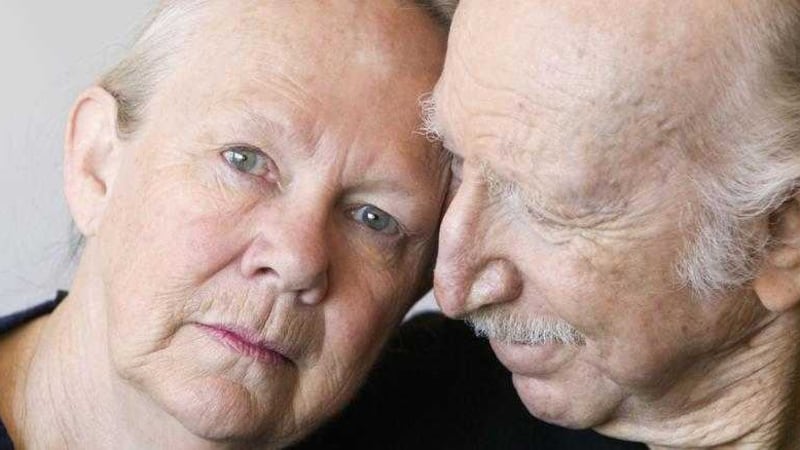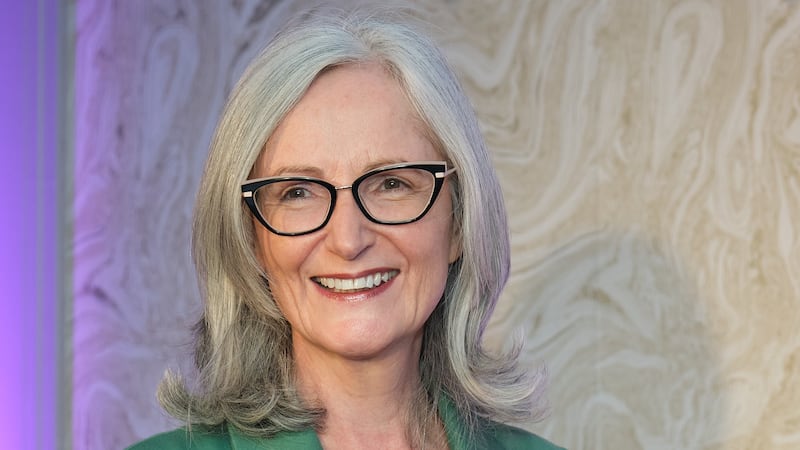I THINK it’s dreadfully unfair for a ‘national’ newspaper to lead with the huge front page banner headline – ‘Memory Loss Breakthrough – An implant that can reverse damage of Alzheimer’s’.
The inside headline read ‘High-tech memory offers ‘very exciting new hope’, but they only added in small print that this hope will not be realised for a long time.
The thought of Alzheimer’s frightens everyone and to read that scientists in southern California have developed an electronic implant that will retain memories, and so help brains damaged with this disease, is exciting.
Only when you go to page six will you read it isn’t something that people with dementia can expect to be readily available in the next decade.
Dr Clare Walton of the Alzheimer’s Society said that if this device is developed further and successfully tested in humans, it could prove to be an effective treatment for some of the symptoms of dementia. “However,” she added, “it will not cure or slow down the progression of the condition.”
Giving with one hand and taking away with the other.
Of course it’s good news that research is pointing towards positive results and 10 years is a short time for some but too long for others. There are 19,765 people in Northern Ireland living with dementia with that figure set to rise as the population ages so, in the meantime, families have to manage the condition when it affects one of their relations.
Pauline (not her real name) is 43 and an only child. She is very close to her mother and father; she admits she takes after her dad – decisive, straight talking, an achiever. He was a successful businessman in Co Fermanagh, a typical husband who saw himself as the breadwinner and his wife as the home maker. Pauline admired him although there were times when they came to loggerheads: “He always won, he was always right!”
More recently, in his retirement, she began to observe little things that worried her. “He got fussed when dealing with money. He withdrew a lot of cash from the bank to transfer into another bank. He set it on the kitchen table and began counting it before taking it to lodge.
“Once he would have done this by cheque or electronically but he got this bee in his bonnet that he had to be in control of it, actually to see hundreds of notes in front of him.”
He also became short tempered. “There was no talking to him, it was his way or no way and at times he was verging on the aggressive.”
What does a daughter do when she suspects her father is sliding into dementia? “He was a top businessman, took meetings, made decisions, was the head of the family. We looked up to him. When he was around everything was OK, we knew we were safe and he’d make everything right. Then it changed.”
His behaviour had developed a notable pattern and is now impacting on his daily life.
I turned to the Northern Ireland Alzheimer’s Society where I talked to dementia support worker James Erskine. He explained that dementia is something of an umbrella term with over 100 different types of this degenerative disease of the brain coming under that heading.
Of those affected by dementia two thirds will experience Alzheimer’s. So, what are the signs and what should you to do if a member of your family shows them?
Symptoms vary but as a guide they include memory loss, changes in personality, the frustration of knowing something isn’t right, and maybe difficulty in selecting words.
Because this illness attacks the brain, the whole person is affected but it’s important to consider if the symptoms could be attributed to something else such as an infection or a mix of prescription drugs.
This would be a way to get your dad along to the GP, Pauline – a simple health check that would give you the chance to introduce the subject of dementia and open up the conversation.
If it turns out to be dementia, James tells me that it’s important to treat the person with dignity. When they say things that are obviously incorrect, go along with it rather than correcting the person because that undermines their confidence and causes fear which leads to frustration. Don’t argue.
He advises anyone in Pauline’s position to research the subject, get advice, find out about the assessment process and ways of managing the disease. There is no better place than the Alzheimer’s Society where James and his colleagues throughout Northern Ireland (there are more than 135 local services) will give you one-to-one advice. Everyone is different so information will be specific.
Young people seem to take it in their stride. I met a delightful teenager in Belfast recently and we got talking. She sees her granny as just a special lady with an old brain that’s a bit tired.
“She’s lovely but she lives in a world of her own. I try to get into it with her but it’s difficult and sometimes very funny. She gets me mixed up with her sister – I’m only 19 and her sister, if she were alive today, would have been about 101!” I told her I was sure her cheerfulness gave her granny great pleasure.
“We have a new game,” she said with a big smile. “I bring a load of socks with me and she loves putting the pairs together; she feels a sense of achievement matching them and she loves the colours.”
Now there’s a great idea from a young person thinking about the life of an older person. Sadly it’s not always just as easy as that but there is help at hand.
:: Alzheimer’s national helpline is 0300 222 11 22: the local phone number is 028 90 664100: email nir@alzheimers.org.uk and the website is www.alzheimers.org.uk.









